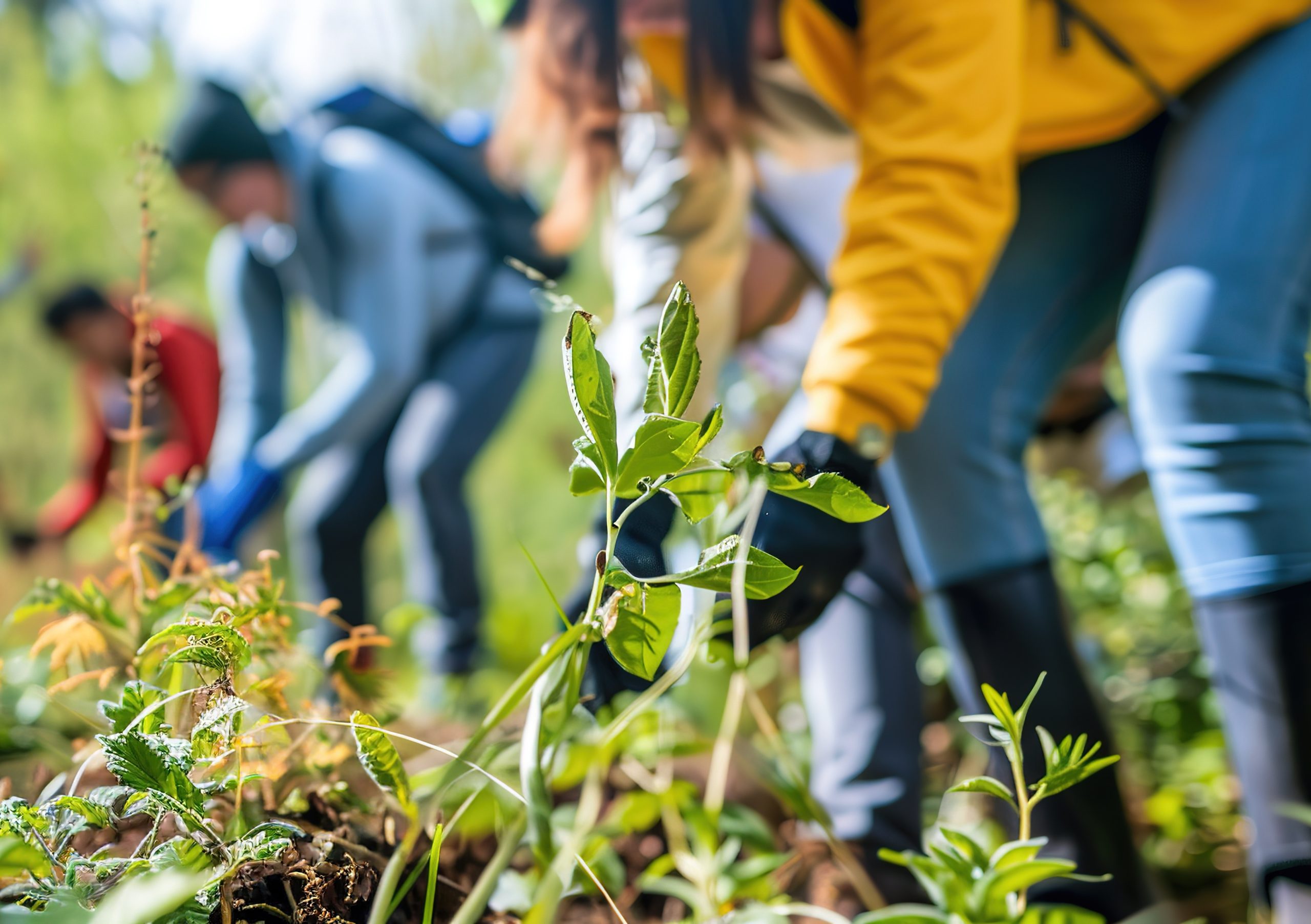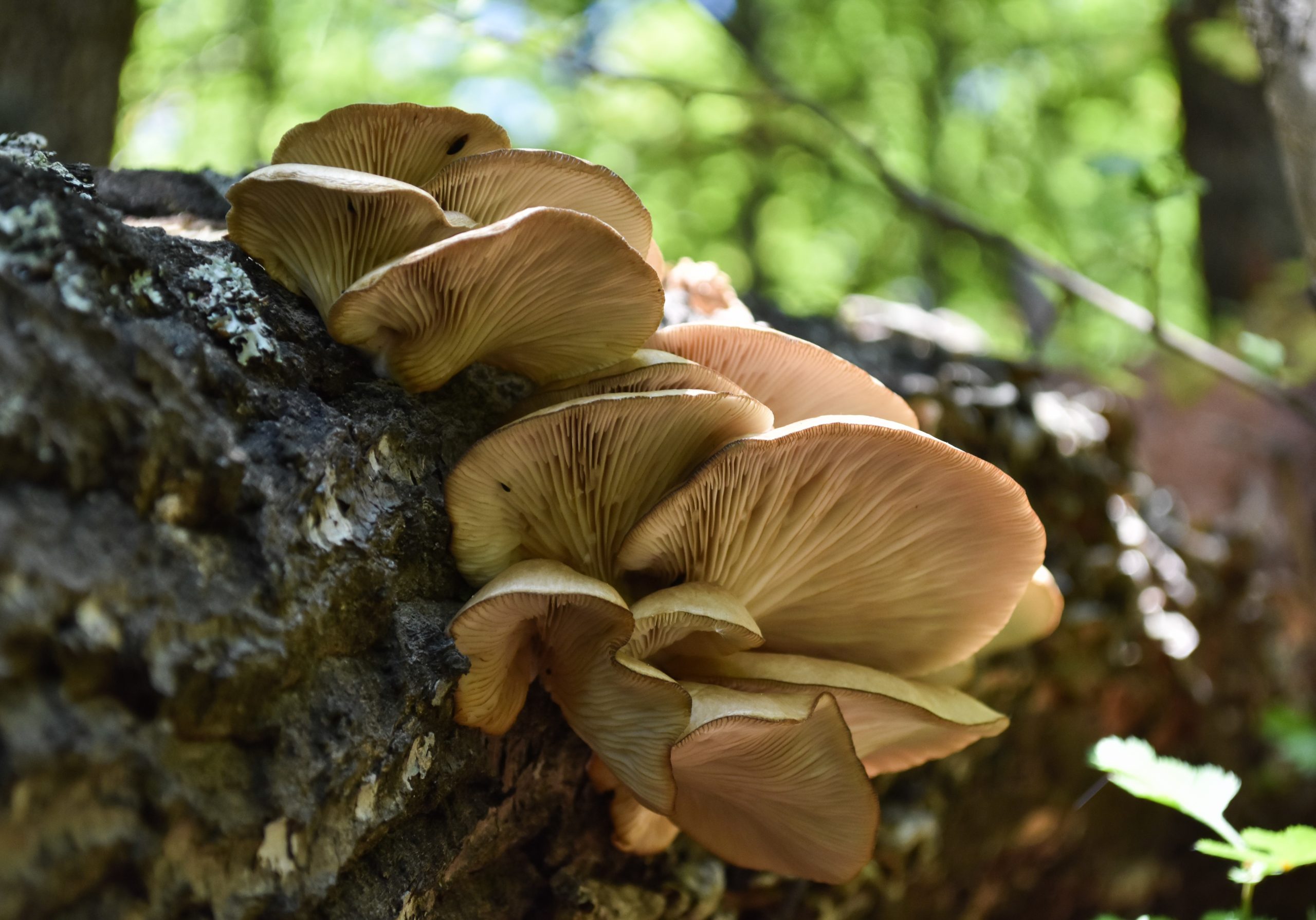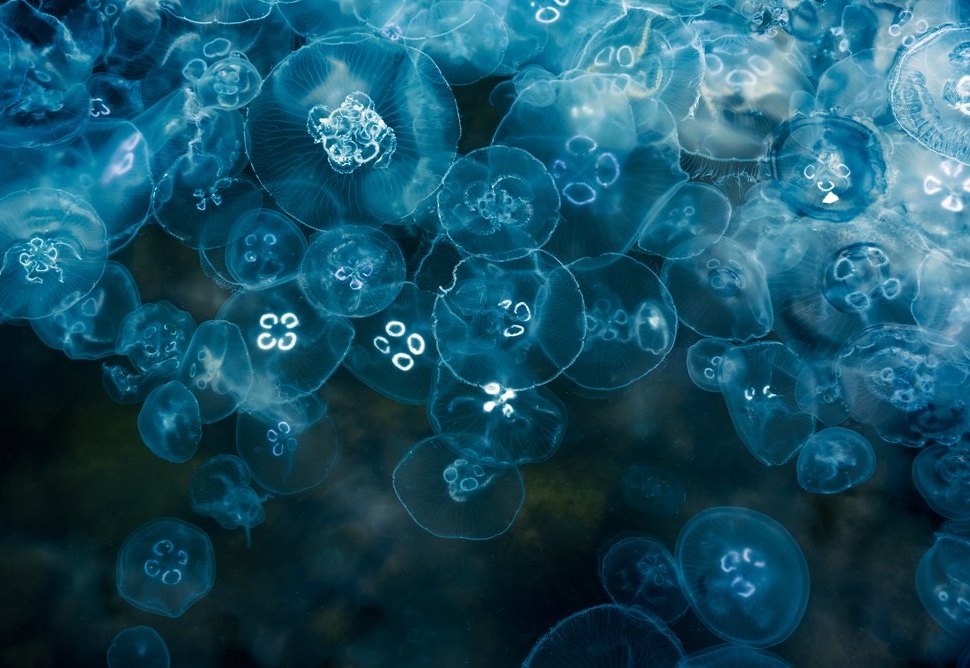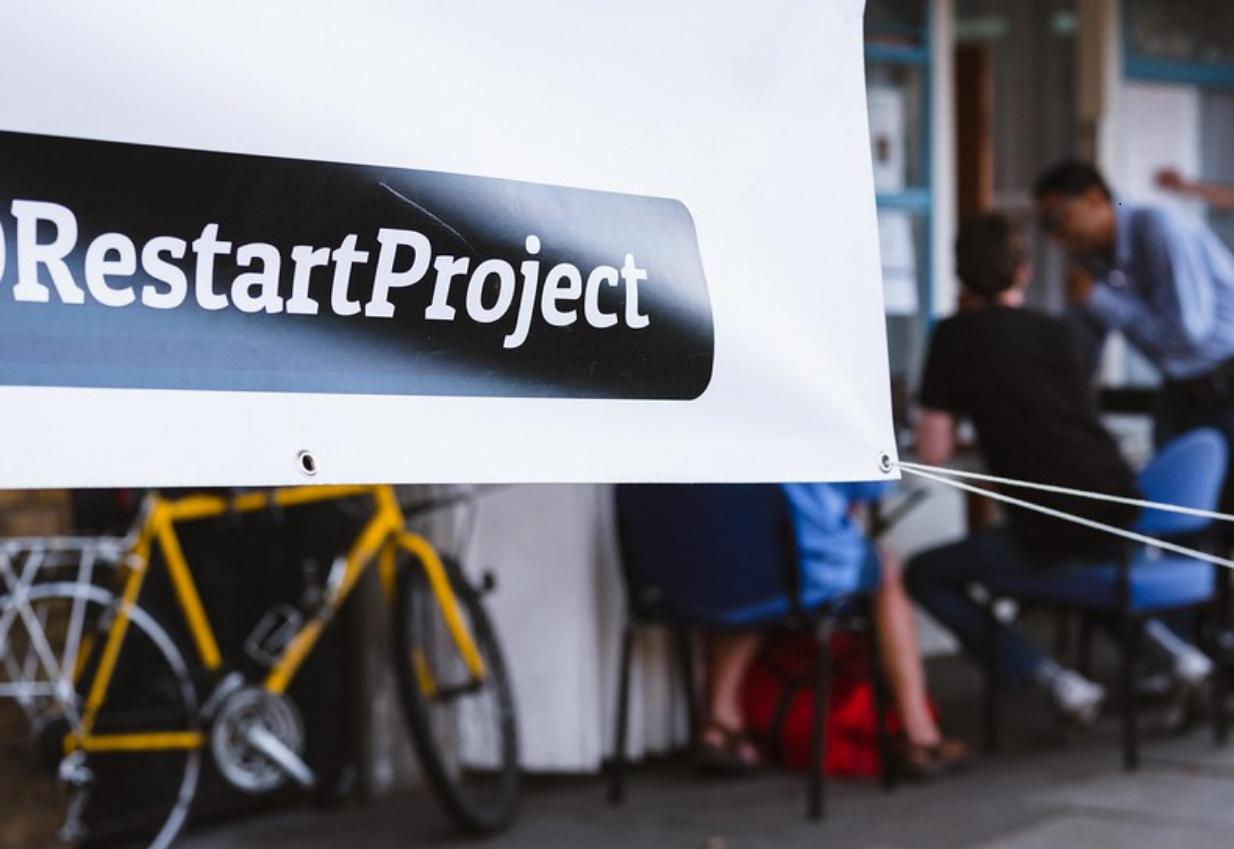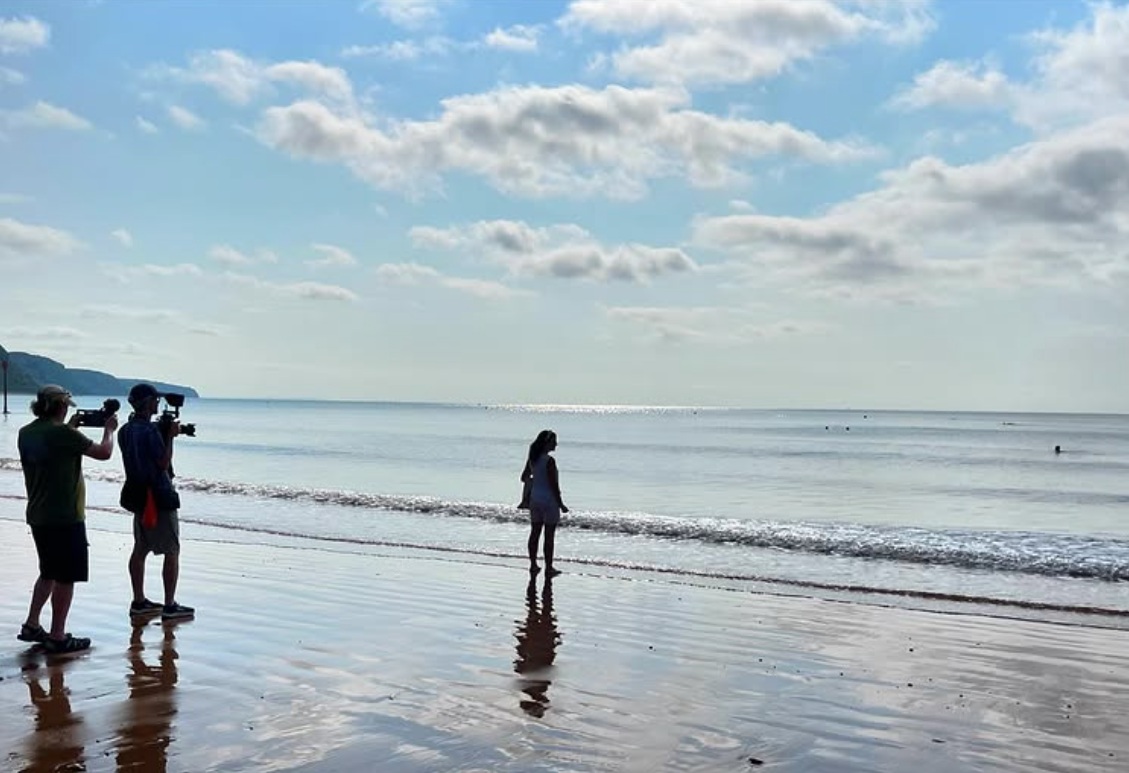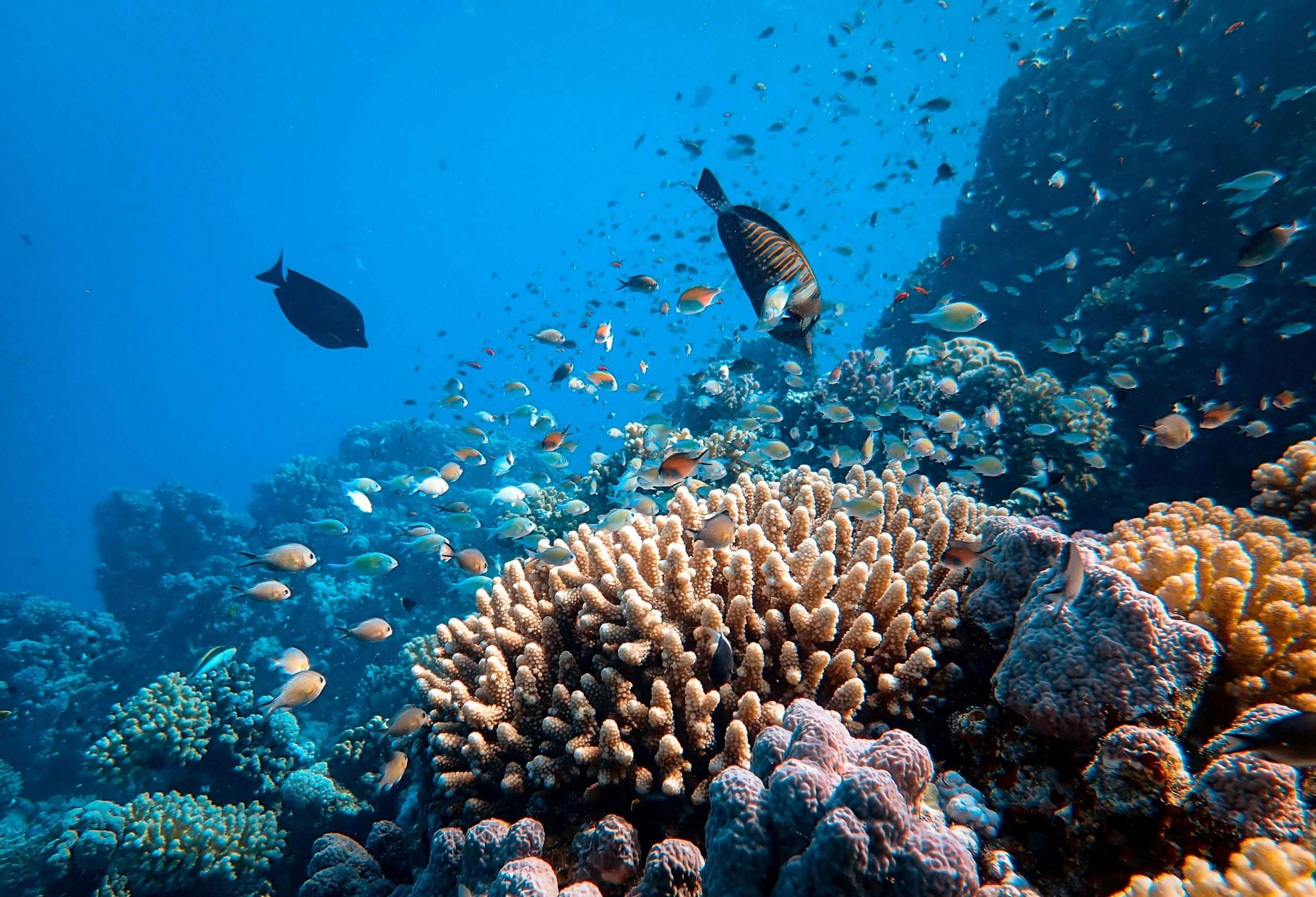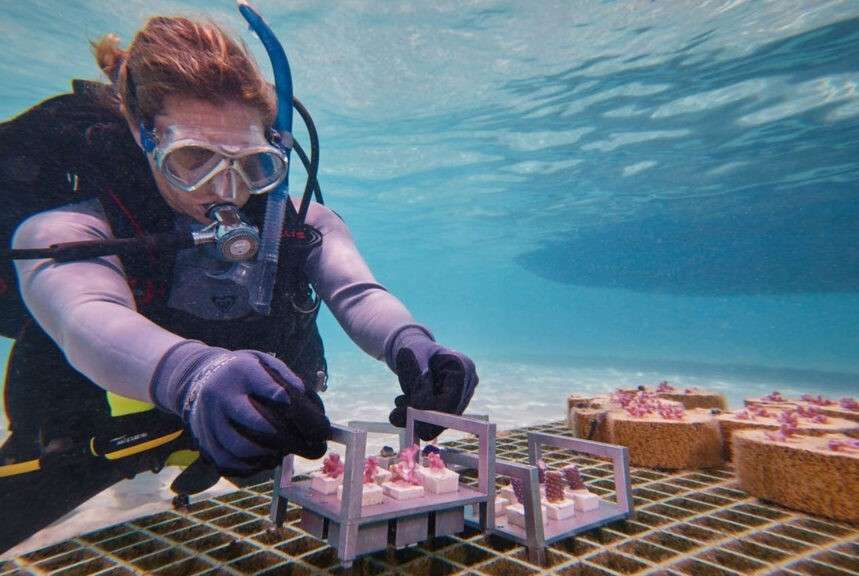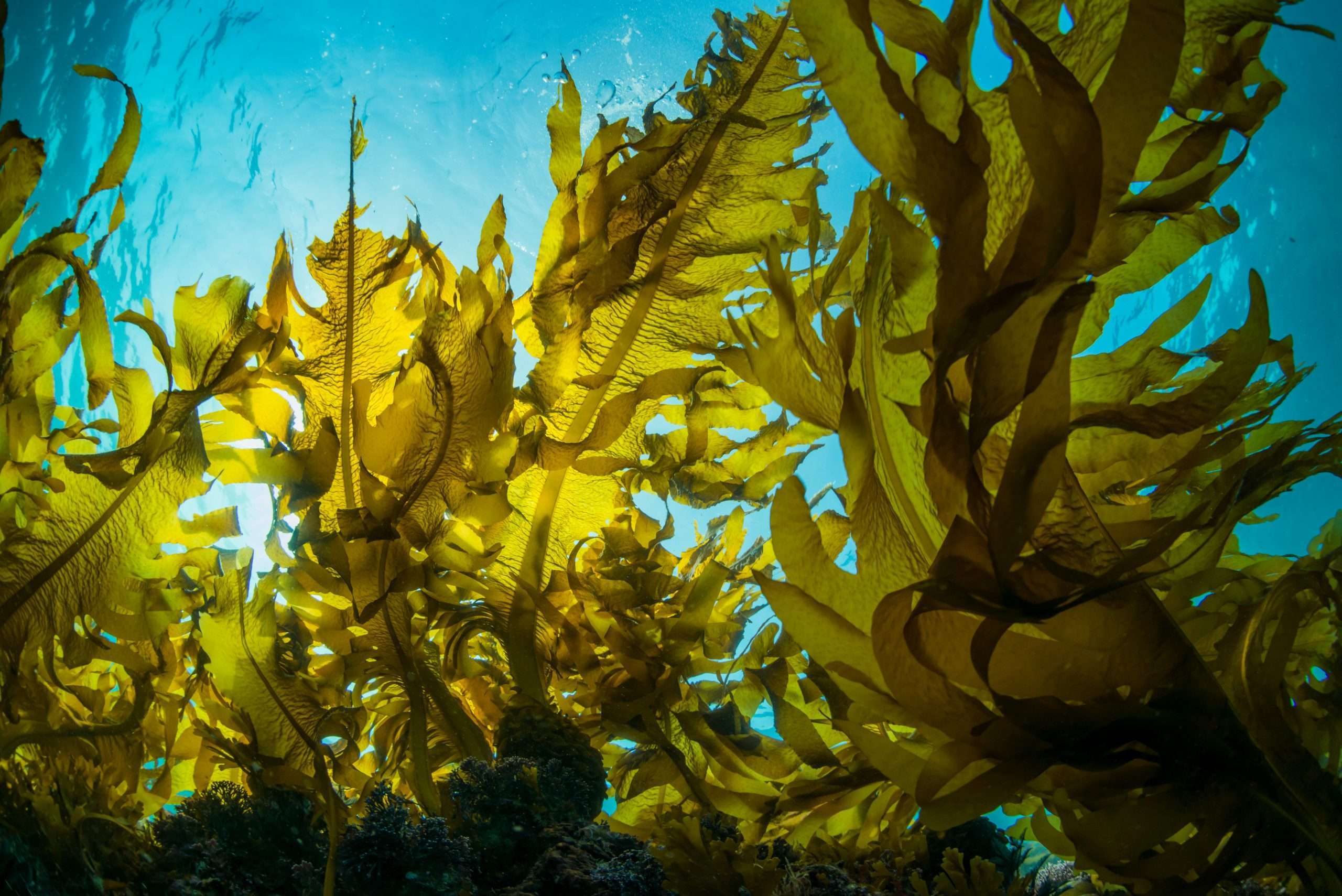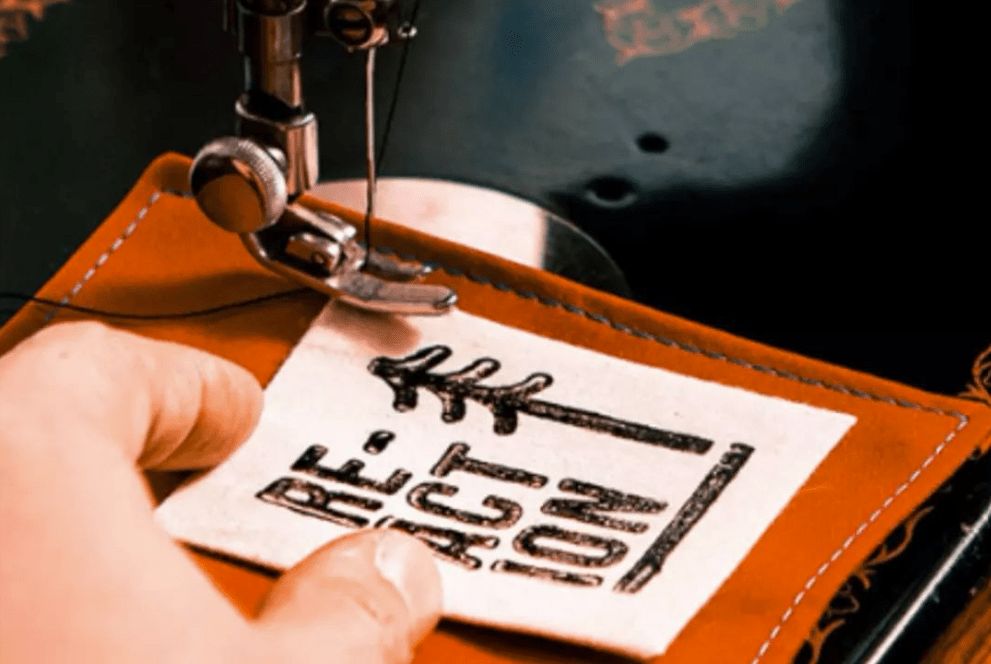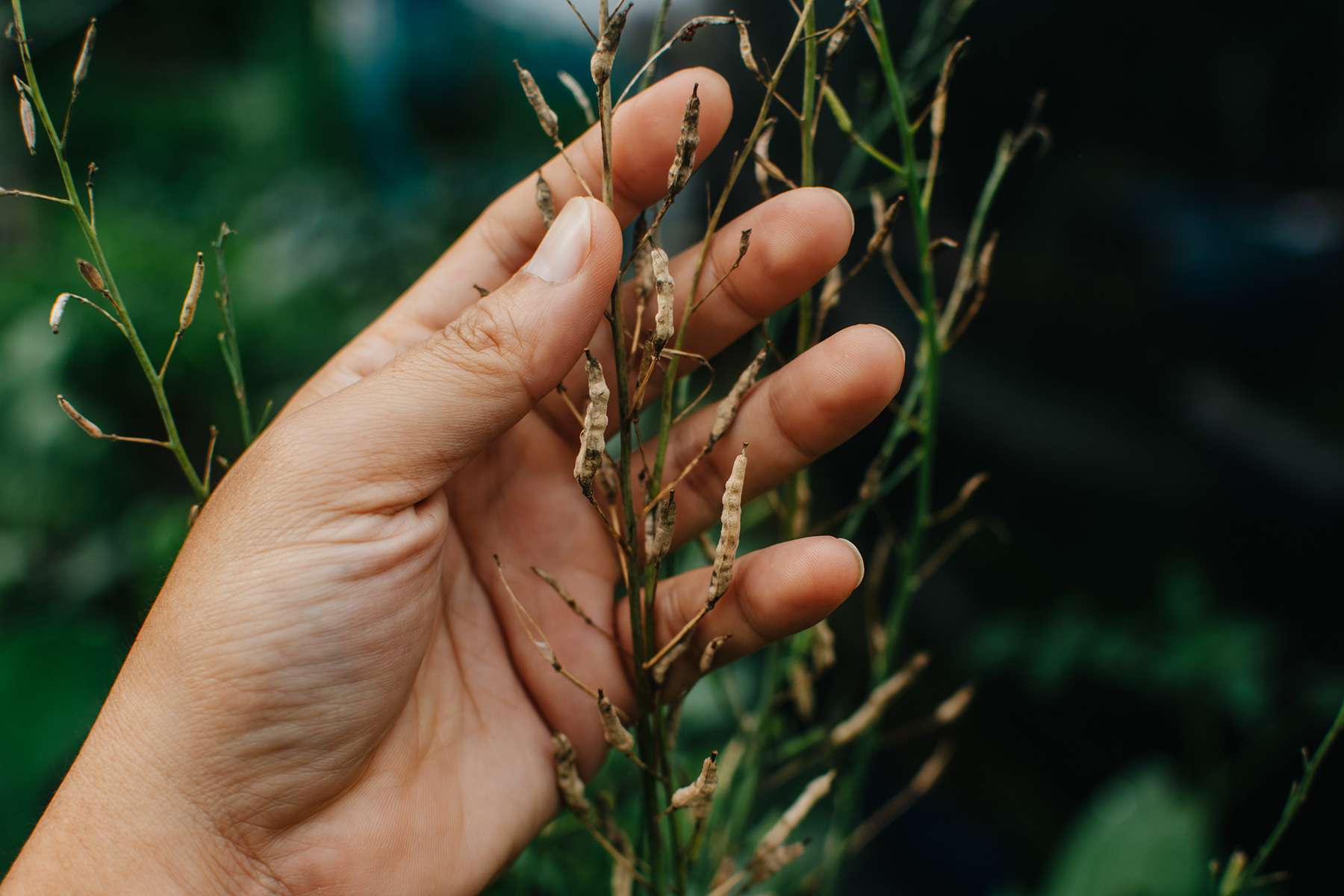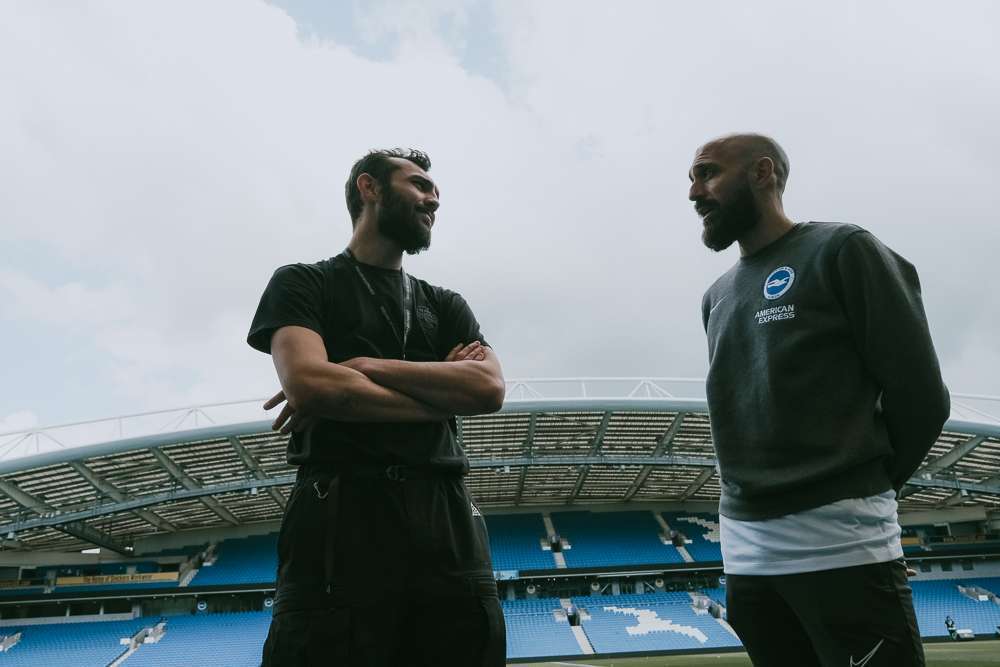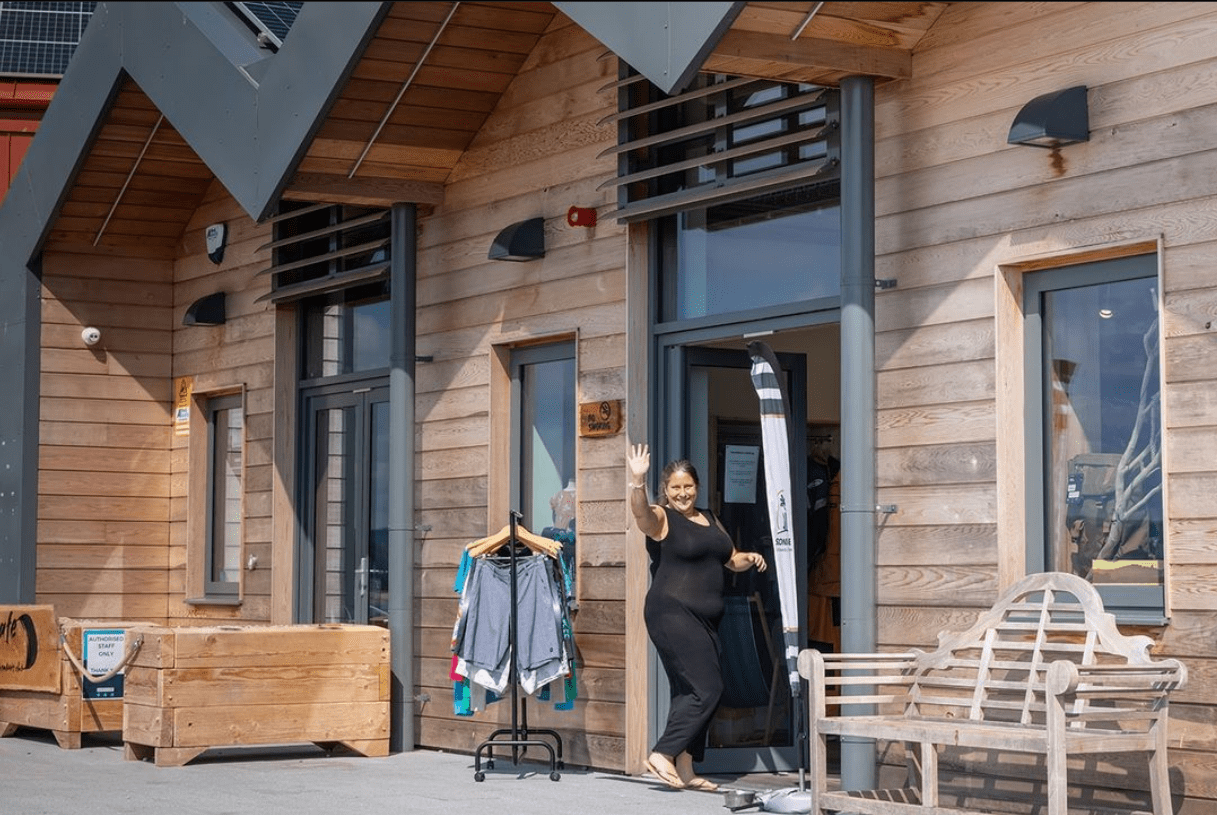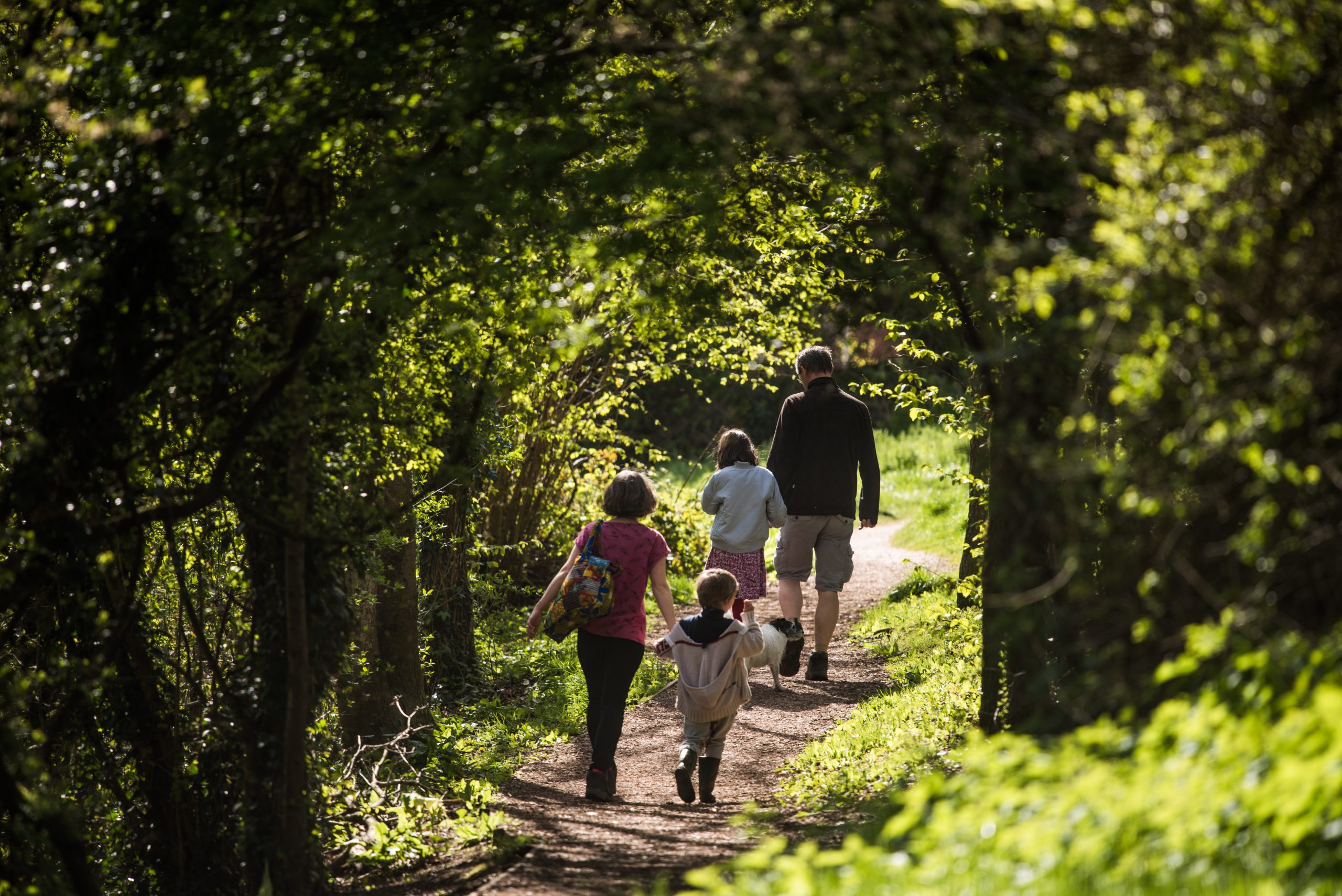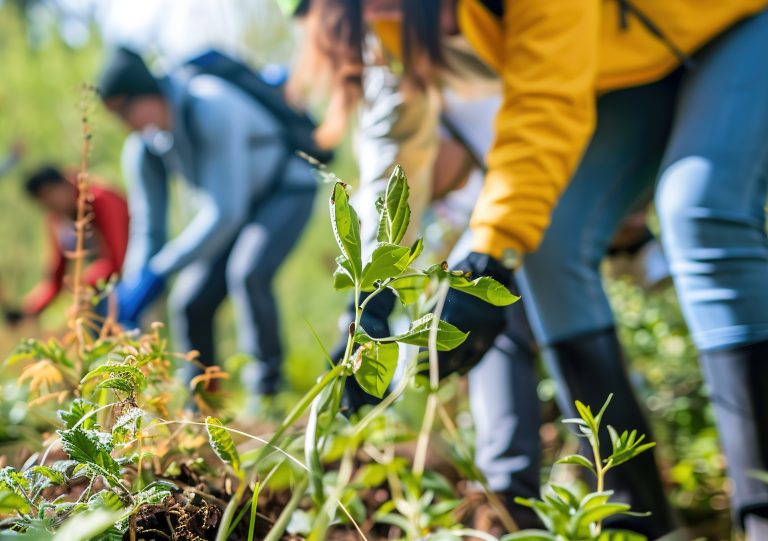
We are thrilled to be supporting Youngwilders with their inspiring youth-led nature recovery work in the UK.
Youngwilders understand the importance of involving young people in the rewilding process and the movement. They work closely with landowners and partner organisations across the UK, and facilitate small-scale nature recovery projects which deliver benefits for wildlife, biodiversity and the climate. Youngwilders involve young people in the entire process from design to delivery, providing them with the opportunity to feel more connected to nature and to have a real say in conservation decisions.
We can’t wait to see Youngwilders’ impact grow as they continue to inspire our younger generations.
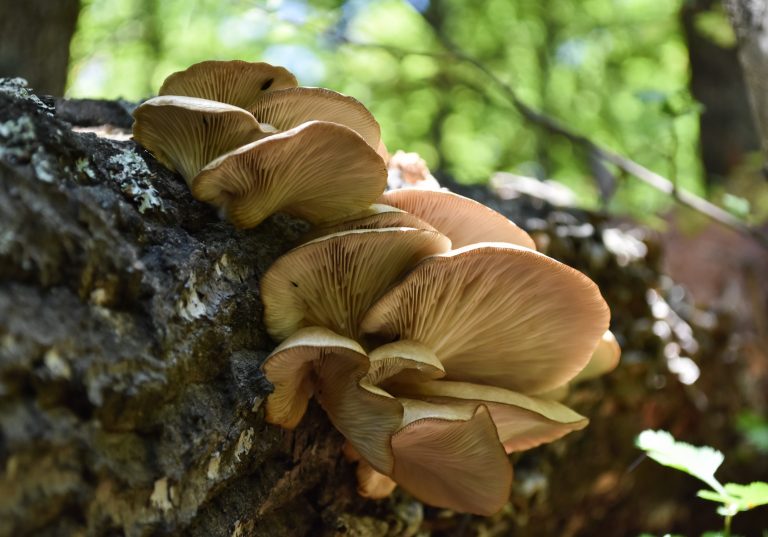
We are delighted to be welcoming Flete Field Lab as our brilliant new grant partner.
Flete Field Lab is a land-based experimental programme of soil and water regeneration trials. Using mycelium and biochar developed from local materials they are developing and testing low-tech, scalable solutions to enhance soil and water quality.
Their work aims to restore soils and improve water quality by mitigating and attenuating agricultural runoff using a combination of mycofiltration and biochar on pasture fields. Field testing with the support of Plymouth University’s professional laboratories, has generated some fantastic results to build on.
We are excited to be supporting Flete Field Lab in their next steps and see the impact they make.

We are so happy to have been able to support the team at The Visionaries as they set up their exciting new project – The Beeches; a thriving hub that holds education, healing and nature at its core.
The project is being run by Beeches Collective; a collective working at the intersection of environmental and social justice, participatory education, youth work, nature connection and health inequity.
Their vision is to transform The Beeches (a property and 12-acre site in the Peak District, between Sheffield and Manchester) into a place where people can learn, be restored through nature and community, and support ecological regeneration. Their aim is to provide an inclusive space to those who might otherwise face barriers to access such restorative places.
We are delighted to support the project at this early stage and are excited to see it grow and thrive.
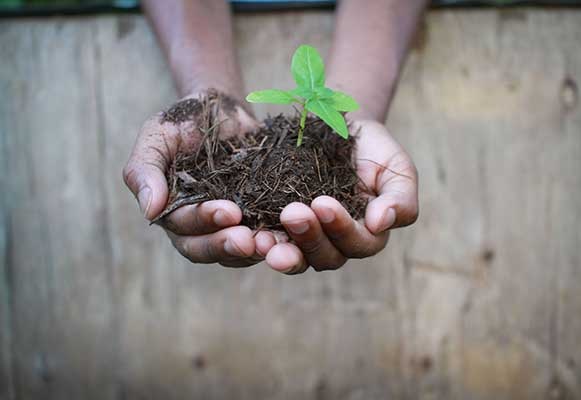
We are delighted to be one of the supporters of the LUSH Spring Prize 2025; a biennial £200,000+ prize fund which has been running since 2017 and focuses on celebrating those who are regenerating ecological and social systems.
The prize offers a financial award to support the work of regenerative practitioners, and aims to go ‘beyond the cheque’ by facilitating peer-to-peer knowledge exchange, storytelling through media partnerships, and mentorship for budding projects.
It began as a joint venture between Lush Cosmetics and the Ethical Consumer Research Association, and over the years has become more collaborative, partnering with other foundations to enhance philanthropic sector building and equitably support marginalised organisations with funding and capacity building support for long-term success.
There are 12 grant prizes available, supporting organisations of all stages across the world that are working to revive damaged natural environments whilst engaging with local and indigenous communities and their needs.
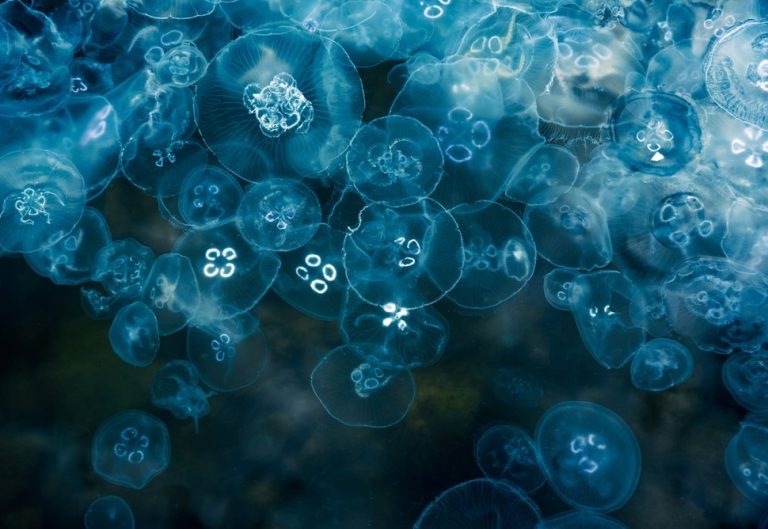
Moonjelly is our new partner in the ocean conservation space and we are proud to be able to support them in their journey to build an impactful network of dynamic Indigenous ocean scientists and organisations dedicated to sustainable ecosystem management.
They serve as a hub for philanthropic support, channeling funds directly to their frontline leaders in Indigenous communities.
The ocean is home to 80% of the world’s biodiversity. While Indigenous Peoples make up just 5% of the global population, they protect the vast majority of the world’s remaining biodiversity. The vital role of Indigenous communities in the conservation of nature is increasingly recognised. Unfortunately, not enough funding finds its way into the hands of Indigenous communities who do this important work. Moonjelly’s goals are to build trust, test the building blocks approach, and co-design a new simplified funding mechanism.
At Moonjelly, they believe that the best and fastest way to restore our sick ocean and protect its biodiversity is to listen to and support those with the most experience caring for ocean and coastal ecosystems — Indigenous Peoples and local communities. They:
– listen to their trusted partners,
– learn what is most impactful,
– help them communicate their needs,
– find resources to support their work,
– connect them with likeminded collaborators, and
– get out of the way.
We can’t wait to see the further impact that Moonjelly will make in this space.
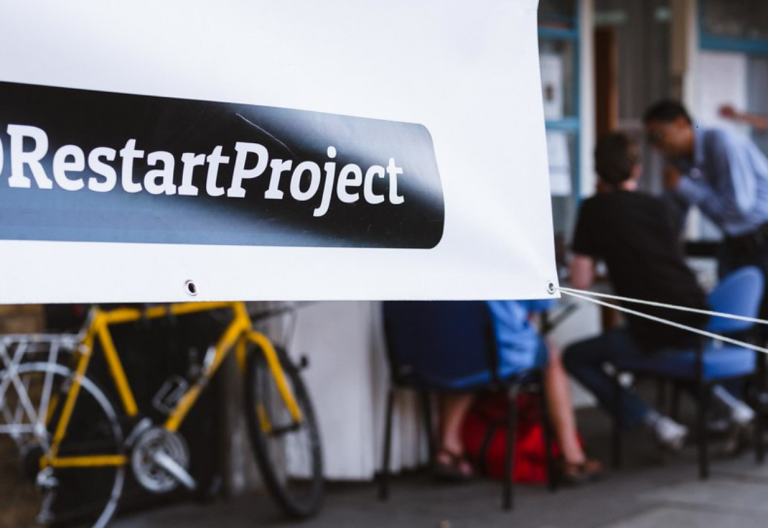
The Restart Project aligns brilliantly with our repair and reuse challenge and we were thrilled to be able to partner with them and support their important work. The Restart Project is a people-powered social enterprise that believes every product should be repairable, and that repair and reuse should be accessible and affordable for everyone..
They support community repair initiatives: groups that offer regular fixing events, where volunteers will help participants to fix their electricals and other belongings. With few commercial repair options remaining, particularly for small appliances like toasters that can be bought new for under £10, repair cafes are often the only option for people who wish to keep their belongings in use for longer.
The Restart Project’s online platform (Restarters.net) supports a London network of 30 repair groups, and an international community of 800+ repair groups. In London, they run skill shares and training, help groups find volunteers, and offer tailored support for new groups. Since 2022, The Restart Project has co-developed two pilot “Fixing Factories” – community-led permanent repair spaces, which they will now scale across London.
The Restart Project also run national and international events to highlight ways for the public to engage with repair – they have founded and lead International Repair Day, which now sees over a thousand events worldwide (1,600 in 2023, 100 in UK), and co-organise Fixfest; a gathering for the repair community. The team also campaign to influence change in government policy to make repair options easier and more accessible.
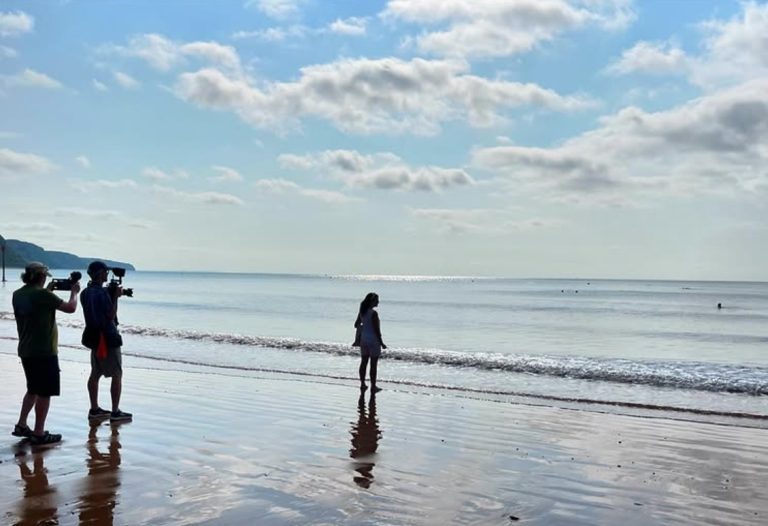
We are supporting the production of ‘Jo in the Water’ – a feature documentary brought together in collaboration with @surfersagainstsewage and @riveractionuk.
“The sea is an amenity that is available to all of us and every single one of us has the right to swim in that sea as often as we like. I’ve had that choice taken away from me.”
Jo Bateman has chosen to fight back and is taking legal action to protect her right to swim. She is suing South West Water for sea sewage discharges at her local beach in Exmouth.
“I’m bringing this case because I’ve simply had enough, and I feel there is no other option available to me for holding South West Water properly to account.”
The film will follow Jo’s journey as she pursues her legal action and connects with others both local and national fighting the same cause. It will be an intimate portrait of an ordinary person who has fallen in love with wild sea swimming and is compelled to take action. Jo is fighting for nature. Jo is fighting on behalf of all of us.
The film is intended for a UK cinema release Spring/Summer 2025 ahead of UK TV and international streaming, to increasingly put pressure on South West Water, and other water companies, to stop dumping sewage in our waters.
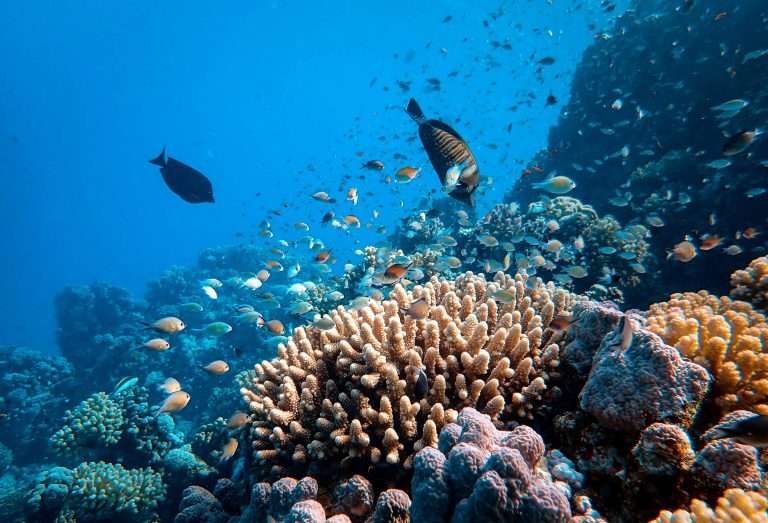
Aqoustics is a new partner for The Dixon Foundation and we are excited to be able to support them in their journey to connect the world of technology with the ocean conservation space and make a positive impact for the future of marine protection and biodiversity.
Aqoustics has built an AI model that can decipher marine acoustic recordings data, gathered by marine scientists, at a much faster rate. These sound recordings can identify the presence of a variety of species in a given marine area.
By scaling up this data analysis, an effective and trusted mapping of our ocean’s biodiversity can be achieved. This can support the identification of thriving habitats in need of conservation, migratory information of species, as well as areas which require protection. Not only that but playing back, into the ocean, the recorded sounds of a healthy coral reef, can encourage growth and biodiversity reemergence on a dying reef.
Aqoustics’ Dave Erasmus spoke at the UN’s World Oceans Day event in New York which can be viewed here:
www.youtube.com/watch?v=jTOQ0X41eBY
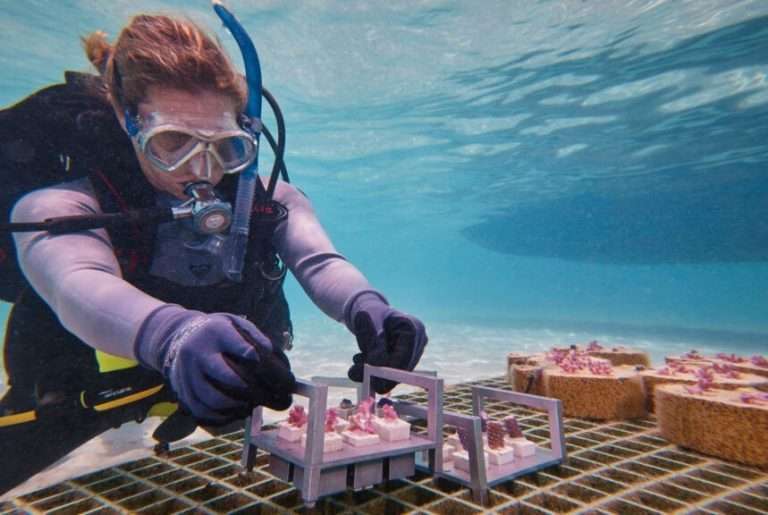
The Dixon Foundation was excited to partner with Coral Maker and support them in their next phase of works in the development of an innovative solution to speed up coral restoration. Coral Maker aligns with our ocean conservation and restoration challenge due to their commitment to scaling up the protection of our planet’s coral reefs.
Coral Maker aim to achieve this by bringing together ocean conservation expertise and tech industry robotics to streamline and automate the coral propagation and redeployment process. They have been busy lab testing the robotics, refining the manufacture of their stone skeletons for coral fragment planting, and are now ready for field trials.
About Coral Maker
Coral Maker is a profit-for-good business in Australia, founded by Dr Taryn Foster, with the goal to restore the world’s most biodiverse ecosystem.
The business will mass produce premade stone coral skeletons, using locally sourced aggregate and recycled stone waste, significantly reducing the number of years of coral calcification (skeletal growth) required to reach adult size. The premade skeletons are then seeded with fragments of coral. The coral propagation process is a repetitive task that is currently manual. Coral Maker’s system automates coral propagation using robotics and artificial intelligence. With their technology, they can scale the deployment of corals for restoration to 100X the current rates.
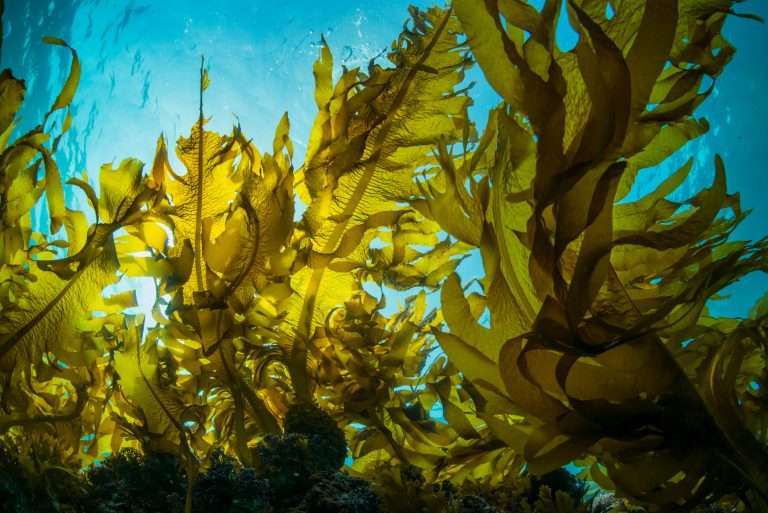
The Kelp Conservation Initiative is one of The Dixon Foundation’s new partners. We were delighted to be able to support them with their work locally as part of the UK Kelp Restoration Project. The project aims to develop a low-cost, scalable, and practical solution to future-proof kelp beds against climate stresses.
Working with the Marine Biological Association (MBA) in Plymouth, the Initiative hopes to progress the ‘green gravel’ kelp restoration tool to protect and restore Devon’s depleted or at-risk native kelp species. The ‘green gravel’ is the name given to the discarded scallop shells used as the substrate from which the kelp will grow on.
Kelp provides huge benefits to our oceans’ ecosystem: spawning and nursery grounds and habitats for many species, food for marine life, a natural coastal defence, as well as act as a carbon conveyor (drawing down carbon faster than many land plants).
The scientists on the project will perform laboratory tests to culture and grow six species of kelp using the ‘green gravel’ method. Juvenile kelp will then be transplanted to various intertidal locations across Devon. The team will then monitor the survival of the kelp and explore new strategies to increase the survival and scale up the restoration process.

The Dixon Foundation are thrilled to be able to support Julie’s Bicycle in their Zero Waste Festival Project’s second phase to develop a waste management toolkit for UK event organisers. In collaboration with Vision:2025, there aim is to deepen understanding about waste management and its impacts at outdoor festivals, and set the industry on a course to overall waste reduction, zero waste to landfill, and increased recycling rates.
The project has built on existing research and the roadmap set out in the Show Must Go On report, and will be steered by an industry working group representing key stakeholders such as festival organisers, waste management contractors, specialists, and industry organisations.
In the first phase of the project specialist consultancy Resource Futures undertook research to understand better current practices impacts and opportunities, producing a report with recommendations. The research brief was informed by an industry roundtable in July 2022.
In the second phase, the working group will consider how the report translates into action across the industry, and the development of a code of practice for resource and waste management.
About Julie’s Bicycle
Julie’s Bicycle is a pioneering not-for-profit, mobilising the arts and culture to take action on the climate and ecological crisis. Combining cultural and environmental expertise, Julie’s Bicycle focuses on high-impact programmes and policy change to meet the climate crisis head-on.
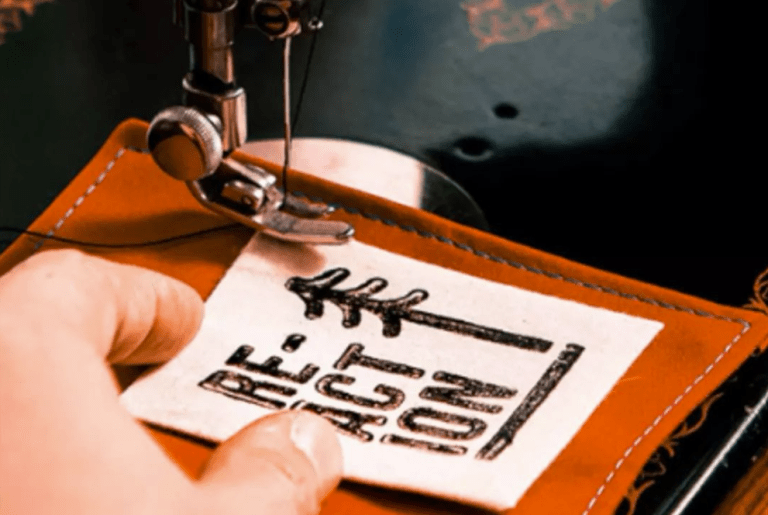
Aligning with our challenge: embedding a repair and reuse culture, The Dixon Foundation were delighted to partner with Re-Action Collective and support their Repair Network Project. Re-Action Collective is a not-for-profit network of organisations with a shared mission to keep outdoor kit out of landfill and in action.
Re-Action is a social enterprise which helps their member organisations save resources, reduce waste and cut carbon emissions. They do this by sharing best practice on rescuing products, reviving them through repair and repurposing them. Re-Action also advise on the best ways to redistribute items through resale, rental and donation and how to reallocate profits to regenerate the outdoors.
About the Repair Network Project
It is all about establishing and scaling a repair network for outdoor activities, empowering individuals to take charge of fixing their belongings. They aim to achieve this by providing access to materials in small quantities – currently it’s difficult to buy waterproof patches, buckles, wetsuit material, and waterproof tape at an affordable price, access to the right materials – that are not always easy to find, and easy to follow content to make successful repairs – provide the know-how for people to make repairs themselves, at home.
The project will not only removes barriers to repair but also encourages sustainable practices and fosters a culture of resourcefulness.
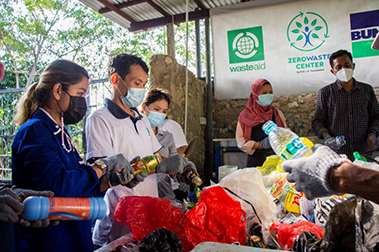
At the beginning of 2021, The Dixon Foundation was extremely happy to support WasteAid with an unrestricted grant to support its operations during an incredibly challenging time of global turbulence.
The grant has contributed to the delivery of WasteAid’s ongoing projects in Sub-Saharan Africa, as well as the development of future projects through engagement with key stakeholders and communities to identify the most pressing needs. In Cameroon, where WasteAid and partners are aiming to prevent a minimum of 16 tonnes of marine plastic pollution, it has supported the training of 164 people in waste collection, recycling to:
– Improve waste collection and management in Village, a riverside community in the coastal city of Douala; and
– Reduce the amount of single-use plastic dumped in or near the Wouri River and thereby preventing plastic leakage into the Atlantic Ocean.
The grant has also enabled WasteAid to continue to raise the profile of waste management as a tool for sustainable development through its external communications, and on the role of waste management on the climate as part of a COP26 strategy.
In 2023 we were proud to have been able to partner with WasteAid again on their E-Repair Curriculum project. This programme facilitates and supports e-waste repair and reuse models, by investing in repair micro-businesses within Diepsloot, a densely populated township in Gauteng.
The training programme will primarily focus on electrical repair related to small domestic appliances which includes larger white goods. This interception of e-waste keeps products and materials in use, and is part of a circular approach that is paving the way for a more sustainable future. The e-waste training programme curriculum is designed to then be replicable and scalable across WasteAid’s countries.
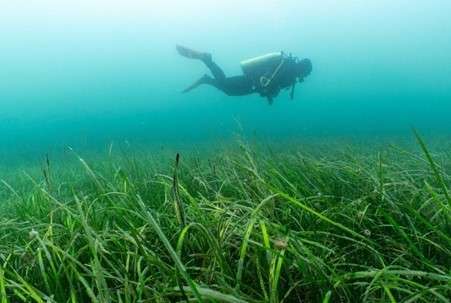
We are proud to have been able to partner with Ocean Conservation Trust on their exciting Blue Meadows Project. The project aims to develop a winning formula for restoring our our ocean’s seagrass at scale – something which hasn’t yet been achieved.
Seagrass meadows are vital in maintaining the balance of our ecosystems. They are home to thousands of species, support the livelihoods of millions, provide over half of the oxygen we breath and absorb almost 1/3 of our global carbon emissions. But only 10% of UK seagrass meadows remain as they become victim to overfishing, global warming and changes in the acidity of our waters. ⠀ ⠀
The Blue Meadows Project plan:
– Protect 20% of the UK’s remaining meadows by building a strong social license to conserve seagrass sites.
– Restore what we’ve lost by developing a tissue culture and seed propagation process to mass plant seagrass.
– Use this as a blueprint to be shared and adapted by coastal communities across the world.
⠀
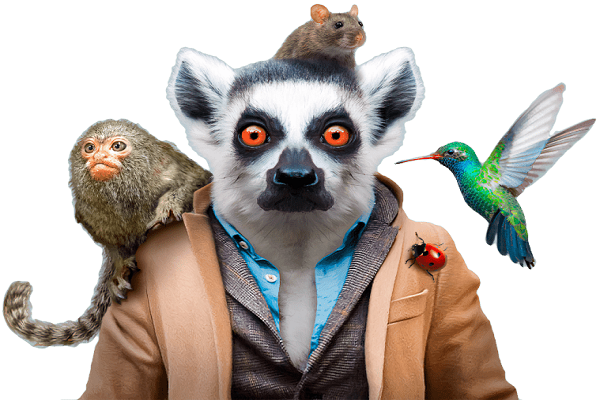
Celebrities have arguably the biggest potential to influence and shape our behaviour for good, but until now, this has been relatively untapped. The Dixon Foundation is pleased to award Creatures United a grant to rise to our ‘Reaching Outside Our Echo Chamber’ challenge and fill this untapped potential without compromising the global reputation celebrities have carefully developed.
Using data, science and technology, Creatures United has been designing and digitalising animals, creepy crawlies and sea creatures and has endless plans to use its animated army to engage the public, including:
– Building one of the most accessible databases that has ever existed on species extinction, with over 33,000 species currently featured;
– Featuring their creatures on in-person panel discussions, voiced over by A-List celebrities, scientists, storytellers, etc.;
– Informing and inspiring greener behaviours and lifestyles by fuelling daily conversations and campaigns driving engagement through positive hopeful content;
– Using mass communications fundraising to directly support the last remaining habitats of important species at risk of extinction; and
– Bringing together collective voices to shape the international policy agenda and drive change at scale.
About Creature United
Creatures United is creating a mass movement of animated, talking animals voiced by some of the world’s best-loved celebrities whose combined reach is in the billions. These unique characters can fuel daily conversations and campaigns that enable fundraising at scale, driving engagement through positive hopeful content, inspiring people to act.
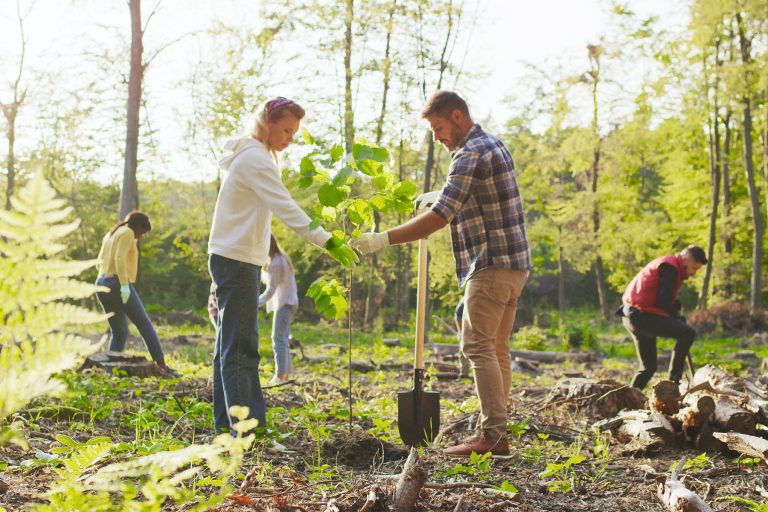
In 2021, The Dixon Foundation funded Grow Yourself CIC to set up the pilot of the Community Tree Nursery (CTN) Project in collaboration with More Trees BANES. Following the success of the pilot, More Trees BANES are now leading on scaling the project further to create a network of community tree nurseries, with a permanent central “Hub” to serve them, across Bath and Northeast Somerset. Once established, there is strong potential for this model to be repeated in other parts of the UK.
Over the next 3 years, More Trees BANES aims to:
– Nurture and develop their existing network: support and develop their community tree nurseries with the aim that they become as independent and self-sufficient as possible.
– Establish 25 new tree nurseries: expand the number of nurseries across the BANES area and in a variety of different settings, from Parish Councils, local farmers and social housing providers to school tree nurseries in areas of multiple deprivation.
– Establish a new Central Tree Nursery “Hub”: a central location for the project and provide a suitable venue for volunteers, practical training and work experience in all aspects of tree growing and after care.
– Facilitate the planting of 20,000 trees: plant trees with their partners, providing advice, community consultation and after care to support good survival rates.
– Education Project: work with Forest School qualified teachers to develop a simple programme for schools that host tree nurseries, to involve seed collecting, sowing and growing.
– Training and work experience: work in partnership with local organisations to provide work experience and training in tree growing and after care.
– Obtain “Plant Healthy” and/or Forest Reproductive Material Registration: sell trees, ensuring they do not contribute to the spread of unwanted diseases.
– Support the planting of the “right trees in the right place”: develop their network of local landowners and community organisations who will receive their trees
– Pilot a Community Fruit Tree Growing Initiative: grow fruit trees using local scion wood to supply local community growing projects.
– Pilot a micro-nursery project: encourage and train people on how to grow trees at home/work and finding suitable homes for them.
About More Trees BANES
More Trees BANES is a registered charity (CIO) that works hard to grow, plant and care for trees locally. Their aim is to become an established and sustainable part of the circular economy in the area and to grow trees with local provenance to be planted out in the local area.
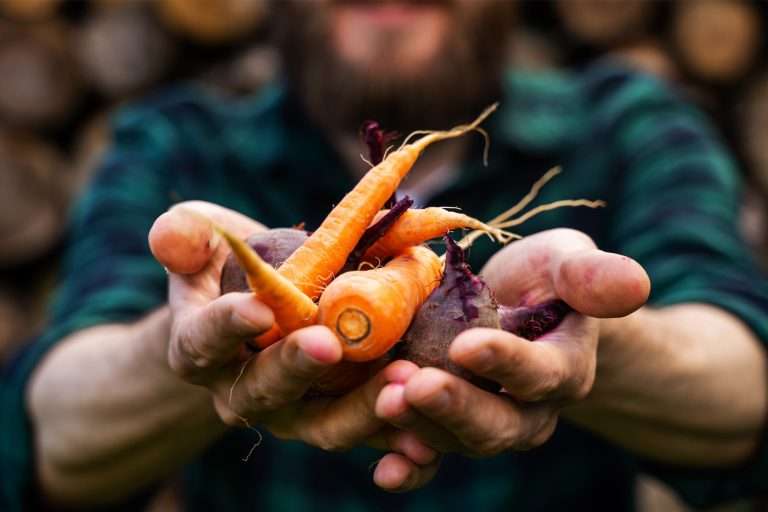
The North-East Sustainable Food Alliance (NESFA) have been awarded funding to meet the first stage objectives of supporting UK wide implementation of Dynamic Food Procurement: establishing a regional food hub in the North East of England that is made up of existing county food networks.
To do this, NESFA will:
– Build regional momentum around Dynamic Food Procurement: Bringing together stakeholders from across the North-East including both regional meetings, and 1-1 meetings with individual anchor institutions to raise awareness of and advocate for dynamic food procurement, highlighting the benefits it provides and the alignment to local authority and anchor institutions strategic priorities.
– Collect data to identify opportunities for impact: Collating information about existing anchor institutions frameworks and gathering and quantifying data from existing local procurement contracts.
– Identifying or forming a Buying Organisation: Creating a hub for Dynamic Food Procurement for the North-East.
– Securing local anchor institution buy-in: Establishing which anchor institutions have the passion and time, resources and funding to lead or support delivery of a dynamic food procurement system.
About The North-East Sustainable Food Allianc
NESFA exists as an informal alliance between the three founding sustainable food partnerships in the North-East region: Newcastle, Middlesbrough and County Durham. These three food partnerships each have existing relationships with a range of anchor institutions (local authorities, universities, colleges and hospitals) and procurement professionals.
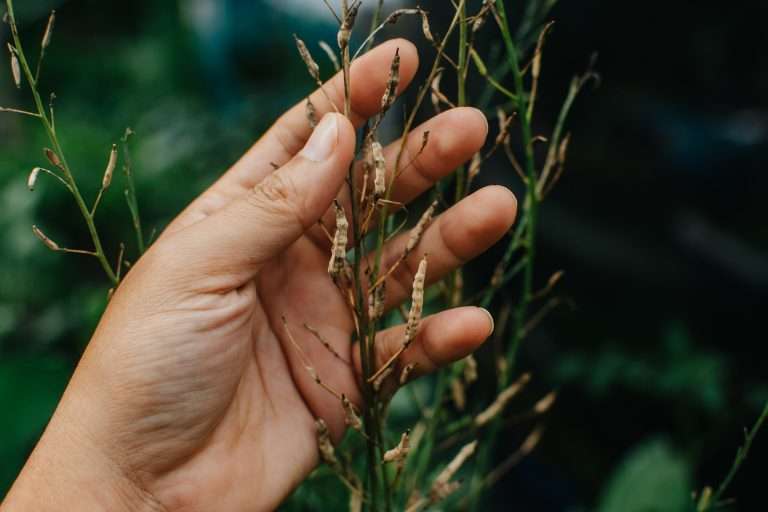
The Dixon Foundation have provided The Gaia Foundation with an unrestricted grant in recognition of the fantastic work they do to build adaptation and resilience in our seed system. Producing and saving seed through ecologically sound and sustainable methods not only protects our agricultural heritage and biodiversity, it makes our food system more resilient, improves the condition of the land and benefits small scale farmers.
Gaia have chosen to direct the funds towards the second phase of their Seed Sovereignty programme, which supports existing and emerging small-scale growers and producers to increase their means of production, to connect with like-minded allies and customers, and to increase the genetic diversity being grown right here in the UK & Ireland.
In its first phase, the programme supported community groups, market gardeners and
farmers to train in seed production. It has significantly increased the availability of open pollinated sustainable seed in the UK and Ireland by:
– establishing 5 network hubs to inform, educate, and connect growers, community groups and crucial players in seed sovereignty
– Training 581 growers through Gaia’s training programmes. Almost 100 of whom now grow seed directly for sale by Gaia’s partner, the Real Seeds Catalogue.
Now in its second phase, the programme will:
– Support & Grow a Strong Community Seed Network: Providing dedicated support for 6 leading community seed organisations in order to understand the unique challenges that regionally diverse, community seed initiatives face, and use these learnings to support the wider community based networks of seed banks, libraries and community hubs into the future.
– Run Variety Trials and Provide Technical Support: Deliver a series of Variety Trials across diverse landscapes and record this regional data using the SeedLinkd app, which has been adapted from the US to the UK specifically for the Seed Sovereignty Programme.
– Conduct Research to Evidence our Work: Research into the Economic Viability of small-scale Seed Production in the UK, working with expert consultants in this field and providing further evidence and support for the existing and emerging small-scale independent seed producers Gaia is working alongside.
About The Gaia Foundation
The Gaia Foundation are a small, international organisation with 35 years’ experience accompanying partners, communities and movements around the world to revive and protect bio-cultural diversity. They take a holistic approach to regenerate healthy ecosystems and strengthen community self-governance.
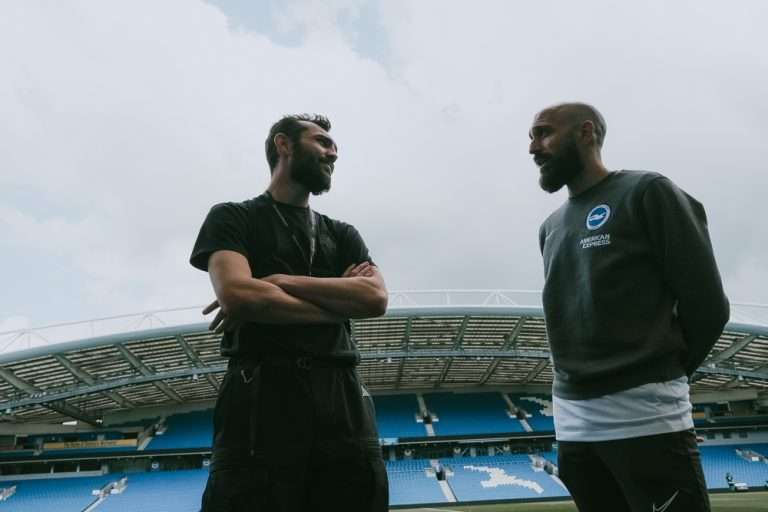
Football players are some of the most followed and influential individuals in the world. FFF provides a platform to support footballers who want to use their platforms to raise awareness about climate change and inspire sustainable action, which makes them a great fit for The Dixon Foundation’s ‘Reaching Outside Our Echo Chamber’ challenge.
FFF provide the climate communication expertise and cultural understanding of football to provide the perfect partner for football players who want to talk about climate with confidence by:
– Providing climate education resources,
– Providing climate communication training.
– Working on climate awareness messaging campaigns.
– Offering climate communication support to engage their friends, followers and families in the conversation.
– Offering support to develop bespoke climate action projects.
“FFF are very excited to partner with The Dixon foundation to accelerate our Climate Champions programme. A FFF Climate Champion is a footballer who uses their platform to raise awareness about climate change, and inspire sustainable action. This project is an exciting opportunity to activate and support some new – and incredibly influential – voices in the climate conversation to break the climate echo-chamber and redefine what it means to be someone who cares about the planet.” – FFF founder & co-director, Elliot Arthur-Worsop.
Football For Future
Football For Future (FFF) is a not-for-profit organisation building a more environmentally sustainable culture in football. It raises awareness of the relationship between football and climate change, and supporting the football industry to become more environmentally sustainable.

The Dixon Foundation was thrilled to offer OWNI an investment in line with our regenerative principles during their first round of fundraising in order to launch its white label resale service for sustainable fashion brands. Since the launch, OWNI has been focused on raising the profile of second-hand shopping and developing effortless resale which replicates the traditional retail experience.
OWNI has already launched resale platforms for Sancho’s, Birdsong and 69b B Boutique, and will be launching Immaculate Vegan, Komodo and People Tree resale platforms this summer. They are also busily designing a mobile app to enhance the brand and consumer experience, which will be launched later this year.
About OWNI
OWNI is a SaaS resale platform that enables fashion and lifestyle brands to enter the secondary market and manage their product’s lifespan. These bands are facing increasing competition from products they have already sold. With OWNI, they can mitigate this risk by managing the secondary market of the products they sell, earning them repeat revenue on the same item of clothing and optimising their post-purchase impact.
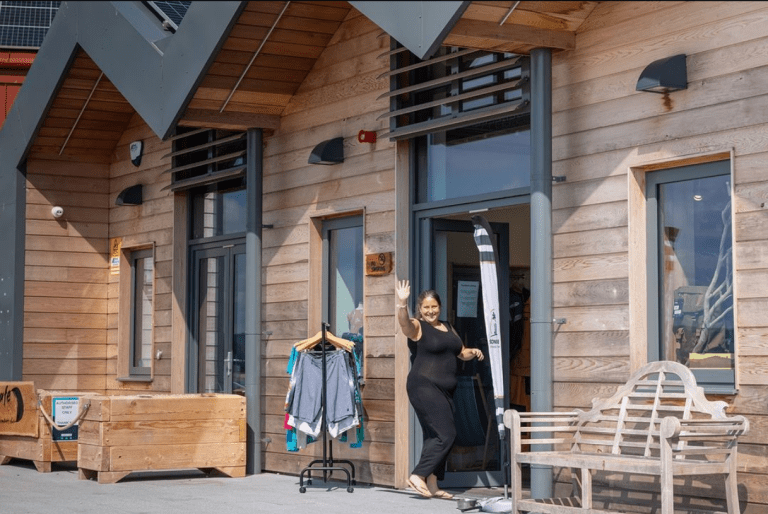
Second Wave was offered a grant from The Dixon Foundation, following Jenna Haws’ (owner of Second Wave) thoughtful and well-planned response to our challenge for a passionate individual or a group to establish and run a slow fashion surf wear store at Sideshore in Exmouth.
With Jenna having launched Second Wave in June 2021, she is now working closely with The Dixon Foundation to help spread the word about the impact of the garment industry and demonstrate how easy it is to buy more sustainably.
“It’s really important to me that people embrace preloved items instead of them ending up in landfill. We want to provide customers with great quality items, whilst also extending the life cycle of each garment. Our long-term plan is to provide customers with tangible evidence of the difference they make by shopping second hand instead of buying new, by sharing details of the positive impact each purchase makes in terms of saving water or reducing their carbon footprint.” Jenna Haws, owner of Second Wave Clothing.
About Second Wave
Second Wave Clothing resell quality surf clothing, accessories and watersports equipment. It is part of the quickly growing slow fashion movement, a sustainable approach to considering the processes and resources of a garment and extending the life cycle to avoid waste to landfill.
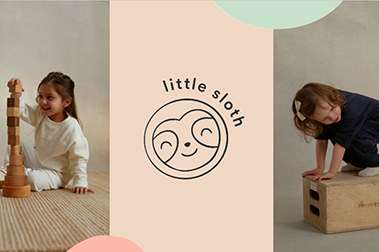
The Dixon Foundation is delighted to be supporting little sloth with a grant to build and launch the first full version of the little sloth childrenswear platform, which aims to reduce landfill waste by helping parents and carers to access sustainable, affordable and high quality preloved clothing to rent.
This grant will allow little sloth to build its rental platform in beta-testing mode, and prove that there is appetite for a childrenswear subscription service that makes a positive impact on the world. It will also help to build demand for independent, sustainable brands that are working to make the fashion industry more transparent and ethical – allowing them to further grow their sustainable businesses and continue the virtuous cycle.
About little sloth
little sloth is a childrenswear subscription service featuring UK based independent sustainable brands and preloved clothing to rent.
It exists to give busy parents and carers an easy way to shop smarter for their little ones. It gives shoppers what they want – quick and easy access to genuinely good childrenswear, sustainable brands what they need – a bigger audience; and the planet what it needs – environmentally friendly manufacturing and a more circular economy.
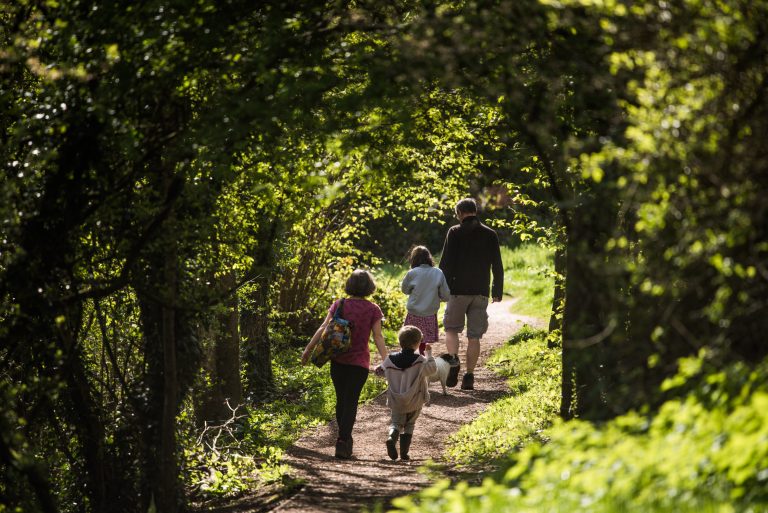
In early 2021, The Dixon Foundation made one of its first grants to Devon Wildlife Trust, to update Mincinglake Valley Park’s public infrastructure to provide easier access for all visitors.
Mincinglake Valley Park in Exeter had seen a greater number of people visiting due to the Covid pandemic. Whilst it was fantastic that more people were seeking to connect with nature on their doorstep, it also increased pressure on the park’s access facilities which urgently needed upgrading in order to support the increased footfall and encourage people to keep visiting the sites year-round.
The Dixon Foundation’s grant unlocked funding from Viridor Credits to enable a range of improvements to public access and information features at the site, including:
– Repairs to 135 metres of paths and replacing some steps with ramps to benefit visitors using wheels (mobility scooters, pushchairs, bikes etc.);
– The removal of some gates and stiles at key access points; and
– New way-finder posts and community noticeboards for visitors to learn about the site’s history, wildlife and conservation methods.
As well as the work at Mincinglake Valley Parks, Devon Wildlife Trust continues to enhance habitats for wildlife and public access at all six of the Valley Parks, as well as on its 52 nature reserves around Devon. This is complemented by education activities with local schools and community groups undertaking major conservation projects like Saving Devon’s Treescapes.
About Devon Wildlife Trust
The Devon Wildlife Trust is a member of The Wildlife Trusts partnership covering the county of Devon, England. A registered charity established in 1962 by a small group of volunteers, Devon Wildlife Trust is the only charity that exists to protect all wildlife in Devon and to safeguard Devon’s unique natural environment.
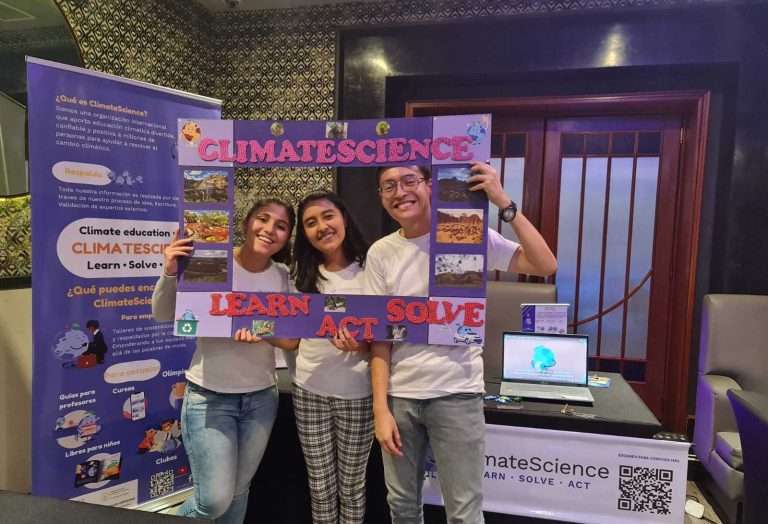
The Dixon Foundation is proud to be supporting ClimateScience with an unrestricted grant until December 2022, to aid the development of new climate education materials and a platform housing ClimateScience content.
The grant is primarily being directed towards the production and publishing of 8 entertaining educational children’s books as well as their translation into multiple languages to support global usage. It is also being used to develop a new platform designed to support teachers use ClimateScience content freely in classrooms both digitally and physically by providing accessible offline resources globally.
With a long-term goal of getting their learning materials approved for integration into national curricula, ClimateScience will be offering distinct types of content for specific stages of education as well as digital tools supporting schools’ need to track learner progress, and means of providing supplemental teaching resources both online and offline.
About ClimateScience
ClimateScience creates impactful, multilingual, educational content based around beautifully illustrated, scientifically-grounded courses, quizzes, and books. It is a registered UK non-profit organisation involving over 200 volunteers collaborating as authors, illustrators, reviewers, translators etc., and has developed local community chapters in 20 countries, predominantly across the Global South.

